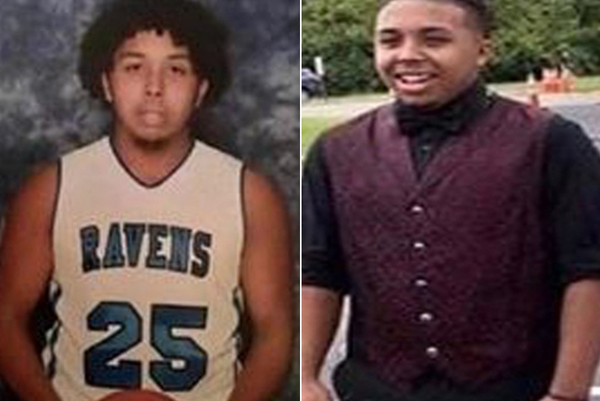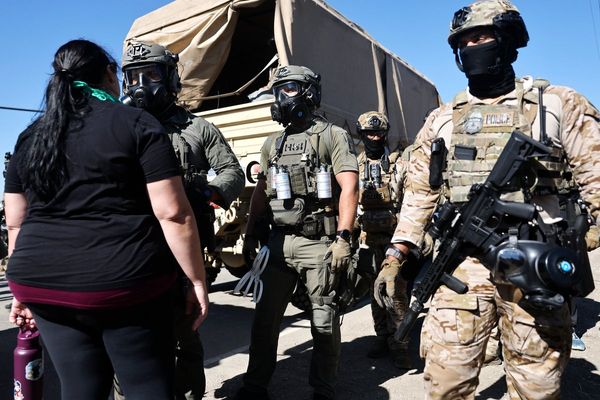Olympian Michael Klim says the support and friendship of the swimming community — including former American arch-rival Gary Hall Jr — has helped him deal with his ongoing health issues from a chronic neural condition.
Dual Olympic gold medallist Klim was diagnosed with chronic inflammatory demyelinating polyneuropathy (CIDP) in 2020.
The condition resulted in ongoing chronic pain, fatigue and difficulty of movement.
Klim was speaking to ABC Sport as he prepared for the Brainwave Klim Swim Challenge in March to raise awareness of, and funds to fight, CIDP and other neural conditions, with children's charity Brainwave Australia the chief beneficiary.
He also talked about the importance swimming has had in his life and the bond he has with his fellow team members — and rivals — from the 2000 Sydney Olympic Games.
Klim, Ian Thorpe, Chris Fydler and Ashley Callus made history on night one of the Sydney Games, becoming the first freestyle relay team to beat the United States in a 4x100m final at the Olympics.
They famously celebrated by playing air guitar on the pool deck, following comments from American Gary Hall Jr that the US would "smash them like guitars".
"So I celebrated our 20th anniversary for the relay [at the Sydney Olympics] just after my diagnosis, so I remember going to the dinner with Chris [Fydler] and Ian [Thorpe] — unfortunately, Ashley [Callus] wasn't there — I think that's what the sport has given me, these amazing friendships," Klim said.
"I knew especially those guys were going to be there for me, and they have been with anything that I needed.
"I think the swimming fraternity has just been so amazingly supportive, not just from the administration but all the guys on the team and it's just re-iterated, I think, just why we do the sport.
"We don't really do it for the glory, and the victories – but it's those connections that you make with people that kind of last forever.
"I went to the States recently to accept the [swimming] hall of fame induction and I spent some time with Gary Hall and he's probably one of my closest friends in the swimming community and 20 years on from such a great, great battle that we had in the pool we've remained friends and we realised what it was in that moment in sport.
"And certainly outside the pool he's a great individual and I cherish our friendship."
Klim said the Australian swimming team from the Sydney Olympics had a WhatsApp chat group to keep in touch.
"We've become more nostalgic and I think the older we get we tend to reminisce and talk about the event [in Sydney] more frequently than we used to," he said.
"I think it just shows, we realised how much it really meant to everyone … and I think we appreciate each other, we appreciate what we were offered by the Australian swim team, the Australian Sports Commission, the opportunity that was laid out for us [in Sydney] and we were fortunate enough to make it come to fruition I guess."
Raising money, awareness and fitness
Klim started as a patron of Brainwave Australia 20 years ago, after visiting the neurological ward at Royal Children's Hospital in Melbourne.
"Originally we were raising money to refurbish that ward at the Royal Children's … so I've been a very passionate patron and now, ironically I've got a very similar condition that I've witnessed with my own eyes that kids were suffering and it's been so hard for me to come to terms with it," he said.
"I can imagine some kids that are still toddlers experiencing neural auto-immune neuropathies, or cancers or conditions of the brain. And for them to even rationalise their life at that point of time, must be so difficult."
The Klim Swim Challenge is hoping to accomplish two goals, Klim said.
"One, to raise awareness of Brainwave, which is an amazing charity that supports hundreds and hundreds of families and sufferers with brain and neurological disorders around Australia, but also to get people active and back in the pool, [or] not necessarily the pool," he said.
"Obviously hydrotherapy is a big part of treatment for any neurological condition … so we just tried to combine the two and just encourage people to get in the pool, do one lap, 1 [kilometre], 20k, or 100.
"You can do it as an individual or as a family or a corporate team, but ultimately we'd like to raise some very-needed funds for Brainwave who do such a great job in supporting these families who sometimes aren't eligible for NDIS, or struggle financially."
The challenge's website says the overall goal is for people to swim 34,000 kilometres across Australia.
Klim urged Australians to take swift action if they started experiencing odd neural sensations.
"CIDP stands for chronic inflammatory demyelinating polyneuropathy. Chronic is almost never-ending, inflammatory – well the nerves actually do inflame — but it's demyelin, the sheath of the nerves where they start fraying," he said.
"And when they start fraying a little bit, the signal, the messaging doesn't get sent properly to — generally it's the extremities, so it's your hands and your feet, and it starts working inwards.
"But there are a lot of auto-immune [conditions] or neuropathies out there that are quite similar like GBS [Guillain-Barré syndrome] and MND [motor neurone disease], so there are a bunch of them.
"As soon as you get any weird neural sensation, let's say in your hands or in your feet, I would encourage everyone to go and get it checked out.
"The best-case scenario is there's nothing wrong, at least you've got that peace of mind, but the earlier you can kind of capture these disorders you can stop the demyelinating process.
"There are certainly treatments there that can halt or slow down the [degrading], but if you let it go, it's very hard for those nerves to grow back."







